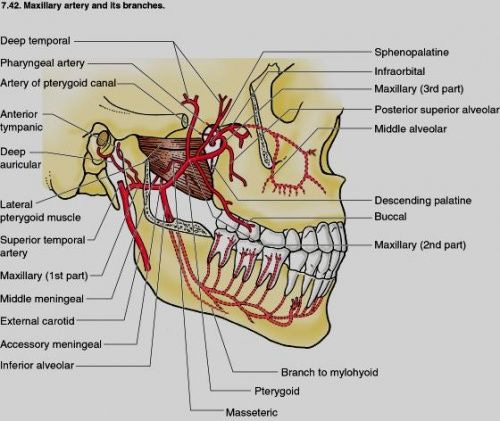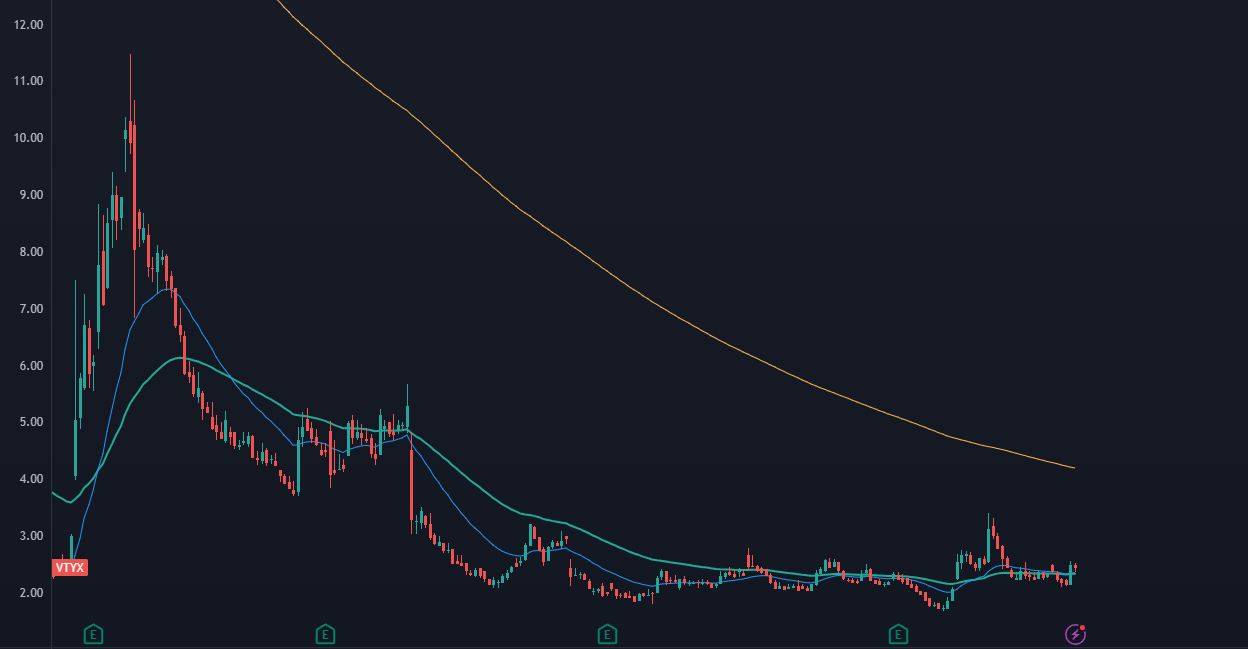How To Floss Every Day
A 10x Stock Pick, and I've Discovered a Treatment For Alzheimer's Hiding Under Our Nose
I’m not a fan of medical consensus. There’s too many conflicts of interest, lazy research, and doctors who only have the time to put their patients on a series of prescriptions.
It’s why I’ve been bearish on Alzheimer’s research. And why I made a bearish call on SAVA. Feel free to read my research here:
SAVA reported FDA trial results late November, and the stock went from $26 to $3.
People need to go to jail over the false trail that’s been built out by the Alzheimer’s complex. And honestly, I wouldn’t be surprised if the rest of the Neurodegenerative universe has systemic issues as well.
So yeah, doctors suck, medical research universities suck, pharma companies suck.
But the dentists… they’re 100% right.
You need to floss.
Your “Scared Straight” Method To Daily Flossing
What’s the big deal? So maybe you don’t have the best dental hygiene in the world, but you’ll catch up, right?
I’ve had to battle gingivitis my entire adult life. My teeth cleanings have been so intense that I now have full blown dentist anxiety.
Because you can’t “cram for the test” in a dental exam. If your gums are inflamed and infected, it’s going to show.
There’s a reason I’m talking about flossing and Alzheimer’s. There is a link between dental health and neurodegenerative diseases.
You need to floss. Every day, ideally twice a day, ideally after each meal.
I’ve found a very simple solution that will motivate you to floss every night. I need you to print out the picture below and tape it to your bathroom mirror.
Your gums are directly tied to your bloodstream. If you have food stuck between your teeth, it starts to rot and introduce toxins and pathogens into your bloodstream.
Putting this picture in your bathroom will be a constant reminder of the risks you face with bad dental hygiene.
If you have inflammation of the gums— periodontal disease— that skyrockets your risk of every neurodegenerative disease under the sun.
Floss, because your future life depends on it.
A Better Approach To Neurodegenerative Diseases
The “amyloid hypothesis” of Alzheimer’s research doesn’t work. My guess is that it’s a “wet streets cause rain” relationship, where the presence of beta-amyloids aren’t causative but a marker.
I’ve got a better approach using my 20 years of experience in a field of study called “Broscience.”
That means I’m not a medical doctor and have no certifications “on paper” to speak of. But I can treat a sports injury better than 95% of physical therapists.
And I have visible abs. How many doctors do you know who aren’t fat?
(OK I’m writing this in January, so I’m a little fluffy. Abs are back in 10 weeks.)
The medical community is a consensus-seeking institution led by its own momentum, even if it’s in the wrong direction. It’s hard to change consensus even as all these FDA trials continue to fail.
So let’s operate from some of the “first principles” of Broscience to get to a better treatment.
Why Are You Fat?
There’s an internet debate that’s been going on for 20 years with a single topic:
Do "individual calories” matter, or do the kinds of calories matter?
Is it just “Calories In - Calories Out” or do you have to do something different to lose weight and keep it off?
If we were in the 1960s, then the CICO model works great. Yet there are environmental factors that have made millions of Americans incredibly sick.
Are we eating more food? Sure, but there’s something else going on…
Demographics and lifestyle do matter… yet there is this odd relationship between elevation and obesity. It could be that higher elevations help your CO2 tolerance which can help with your metabolism.
But it could be the water supply. If you live up against the Mississippi river, you’re subjected to a lot of chemical runoff in the water. It could be pesticides. Or fertilizer. Or lithium.
We don’t know. Yet.
Something is out in the environment that turns people from “fat” to “they’re 400 pounds and will die in 2 years.”
Here’s how I think it happens.
If you’re exposed to a bunch of toxins, then your body can’t clear it out. Your liver can’t process all the crap you put in your body. This is true for alcoholics as well as daily fast food eaters.
If your body can’t clear the toxins, then it has to store it. Fat cells are the only way to do it. Your body ends up in an open feedback loop of inflammation, inability to metabolize, autoimmune, and weight gain.
It’s also why, if you are morbidly obese and start to lose weight, that you feel sick. Because those fat cells are dumping those toxins back into your bloodstream for your liver to work through.
If we were to create a unifying theory of weight loss:
“Calories In” matters, along with the blend of calories
“Calories Out” is a function of inflammation, metabolism, and a host of other things
You have to work on both sides to keep weight off
Could we use this framework for the brain?
Inflammation and Degeneration
A better approach of Alzheimer’s is that it is “diabetes of the brain.” We are seeing that Alzheimer’s patients have a kind of insulin resistance, where their brains have a broken metabolism.
That’s a solid jumping off point.
Here’s my claim:
If your brain can’t clear out lipophilic toxins (like beta-amyloids), then you end up with a bunch of shit in your head that is going to affect everything else downstream. You could also have your immune system react to those toxins by attacking your own cells.
It’s why you need to floss, because if you don’t then your gums open your bloodstream up to all kinds of toxins.
(This is probably contagious. Dentists who work on ALZ patients have a much higher risk of contracting ALZ.)
As reductive as this sounds, we could ascribe myriad of brain problems to a kind of neuroinflammation.
Alzheimer’s, Parkinson’s, Dementia, Depression, Multiple Sclerosis, Autism… I think they’re all linked.
As to the mechanism… this is where I acknowledge the limits of Broscience. It could be insulin, could be glutathione production, could be candida, could be eating too much sugar.
Yet this line of inquiry beats the pants off a monocausal approach that everyone is focused on. It’s a systemic issue, similar to how morbid obesity develops.
This is a much better approach, and we are starting to see some therapeutics that could work. I’m going to share a company with you, and then I’m going to share an idea that I think could be an incredible (cheap and low risk) treatment for neurodegenerative diseases.
This Pharma Stock Could 10x If Their Results Come Back
First, full disclaimers.
I run a few equity research services, and this stock is one that we found a few weeks ago. My incentives are currently setup for this stock to go higher.
This is a “clinical stage” pharma company, meaning it will have a few binary events that could make or break it.
This is not a recommendation to buy or sell securities, I’m not your financial advisor, do your own research.
(Don’t forget to floss.)
Allow me to introduce you to Ventyx Biosciences, ticker symbol VTYX.
It’s currently at about a 150mm valuation, which is small but not hilariously tiny like some other clinical stage pharma companies.
Here’s their company profile, emphasis is mine:
We are a clinical-stage biopharmaceutical company focused on advancing new therapies for millions of patients living with inflammatory diseases and autoimmune disorders.
Now we’re talking.
They’ve got a few drugs in their pipeline, but the one that interests me the most is VTX3232.
The drug is currently in Phase 2a trials for Parkinson’s. I think it has promise if they are targeting the causes of neuroinflammation. Because if you reduce the inflammation, it allows your immune system to stop being so pissed off, and the brain can start metabolizing the bad stuff that’s floating around.
I’m sure my explanation is full of errors and incomplete, but you should get the idea.
When Ventyx ran Phase 1 trials on their drug, and they found no dose-dependent toxicities— but that’s not what will get the stock to run.
That’s only one half of the pitch.
Remember what happens to your body when you clear inflammation? You lose weight.
This is the result from a mouse-obesity study Ventyx ran with their drug, and they found efficacy with weight loss, along with better inflammation markers.
We are talking drops in cholesterol, lipids, and insulin resistance.
See how there are four lines? This was a smart move because they stacked VTX3232 along with Semaglutide, which is a GLP-1 and if you’ve been around the stock market for longer than 2 weeks, you know how hot the GLP-1 play is.
The company is now set to start a Phase 2a trial specific to obesity. It will be setup in the same 4 bins:
Control
VTX3232 Only
GLP-1 Only
VTX3232 + GLP-1
If the company can show that the combination of their anti-inflammation drug and a GLP-1 provides significant benefits, then that’s the game.
They can set it up so every single telehealth clinic that currently provides a GLP-1 treatment could “stack” their drug for even better effects.
Data dependent, this sucker is running to a billion dollar valuation.
I think once Wall Street catches wind of what they’re trying to do, then institutional capital is going to show up. The company pulled in an investment from Sanofi in exchange for first rights into VTX3232. This pushed their cash runway out to a year and a half, plenty of time to get results in.
Sanofi already has a GLP-1 portfolio, so it’s possible that this is incredibly accretive, and early buyers of VTYX could be rewarded.
That’s the pitch— Ventyx has a treatment that could help neurodegenerative disorders along with helping people lose weight. It’s not a magic pill, but it could be close.
While we all eagerly await FDA results and the stock to moon… what can we do on a personal level to help reduce our risk of neurodegenerative diseases?
I think I’ve found a cheap treatment that’s virtually zero risk that could change the public health of America.
This is not an exaggeration.
Confuse Your Wal-Mart Pharmacist With This One Weird Trick
What if I told you that we have an effective, multi-symptom treatment for every single Neurodegenerative disease that exists today?
First, A Runner Up Award - Nicotine
Yeah, that nicotine. Turns out it’s incredibly neuroprotective and could be used as a treatment for Parkinson’s and Alzheimer’s.
Nicotine doesn’t mean cigarettes, it means nicotine. There’s plenty of companies that offer safe versions of the drug. I’ve never used nicotine until last year and it works great for me. I take very small doses in dissolvable mint form (shout out NicNacs) and I don’t have any addictive tendencies with it. Which is a shock given my personality.
I wouldn’t recommend it for everyone though. Hopefully this is obvious.
The Groundbreaking Treatment…Insulin!
Sounds stupid, right? Millions are already on insulin but they are still getting brain-sick. If that was it, we would see the effects, right?
It’s not about the drug, it’s about the delivery system.
People take insulin because they can’t metabolize sugar anymore, most likely due to cascading inflammation. They then have to monitor their blood sugar and inject insulin into their bloodstream so their body can work properly.
What if we put insulin directly in the brain?
Clearly you can’t jam a needle into your ear, so how do you get it there?
It’s why I kicked this entire post off with flossing.
There are blood vessels in your head that allow you to transport chemicals directly into your brain. It’s why people use oral nicotine.
It’s also why people LOVE cocaine, because if you snort it, you immediately feel it.
What if we just snorted insulin?
I shit you not, this could work.
Intranasally administered insulin is assumed to trigger improvements in synaptic plasticity and regional glucose uptake as well as alleviations of Alzheimer’s disease neuropathology; additional contributions of changes in hypothalamus-pituitary-adrenocortical axis activity and sleep-related mechanisms are discussed
I discovered this from a random tweet, which led me to a google document, which led me to a random blogger who put together all the research for me. It’s solid.
The best part? You don’t need a prescription. You can just roll up to the Wal-mart pharmacy and ask for a vial of Novolin R.
They’ll look at you funny, but it’s cheap.
You don’t have to worry about “overdosing” on insulin like you would via injection, because nasal uptake crosses the blood brain barrier and doesn’t mess with your body’s metabolic processes.
Standard disclaimers apply here. I’m a rando on the internet, not your doctor so don’t come back to me saying “I died and it’s your fault.” Yet from my research and experience, there’s not a ton of negative sides, it improves cognitive ability, and provides long term risk reduction from all the ugly brain diseases.
We Need To Scale This
If you’ve never heard of intranasal insulin (INI) before, don’t be shocked. I don’t see a ton of studies that have confirmed my theory.
But we need one, so this is my Big Ask.
I know I spent the first part of this writing taking a giant dump on the medical complex— and deservedly so.
But we need them to see if this has legs.
A treatment for Alzheimer’s could be right under our nose. Literally.
It could also be a treatment for depression. Or autism.
If you are reading this and have anyone in your network that could start large scale trials on this, we need it done.
Not just because of the massive benefits this treatment could provide to people suffering with Neurodegenerative disease. Or the GDP we could save in medical costs.
It’s because I have a GIANT EGO. I want a medal. I want to be the one random blogger who cured Alzheimer’s. It would be hilarious. So I’m asking you, if you think you can help get INI treatment protocols into a large university study, please share this post and see if we can get something set up.









